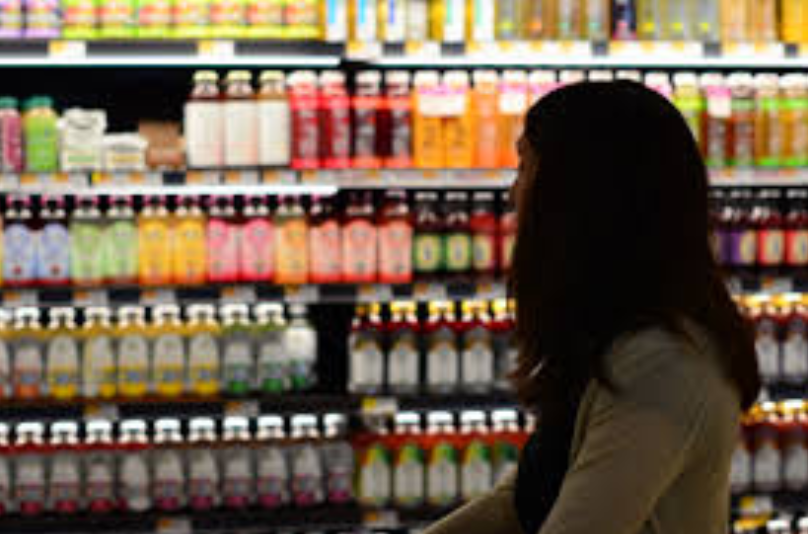
Nowadays, groceries are expensive enough, especially with the incoming tariffs that are already raising the prices of major produce items, such as eggs, avocados, and strawberries. Speaking of strawberries, Erewhon, a so-called “high-end” grocery store in LA, has recently gone viral on social media for selling a singular strawberry in a plastic container for $18.99. Yet, Erewhon has been in the spotlight before. When Hailey Bieber launched a collaboration with them to create her own “Strawberry Glaze Skin Smoothie,” it sold for 20 dollars for 20 ounces. These exorbitant prices have caught the eye of social media users all over the nation, many of whom are simultaneously enthralled by its clean aesthetic and disgusted by the blatant consumerism that Erewhon encourages in its shoppers. Its entire brand is based on promising health through consuming overpriced produce, supposedly adaptogenic snacks, and celebrity-endorsed smoothies, all at a premium price. With this, Erewhon has evolved past just being a grocery store – it has become a status symbol for those who can afford it.
Erewhon’s cult-like appeal is based on its ability to make a mundane chore like grocery shopping feel like a red carpet event. Its shelves are lined and stocked with perfectly curated, aesthetically pleasing products, locally sourced from small organic farms throughout California. The customers seem to fit a certain mold as well: social media influencers, fitness bloggers, and celebrities clad in athletic wear carrying around $138 tote bags from Erewhon to certify their shopper status. Being able to buy products from Erewhon regularly signals exclusivity, privilege, and a particular kind of “health-conscious” elitism that has been popularized by social media. The store’s marketing strategy relies on their shoppers’ tendency to post about prices that would seem absurd to the average American, yet are fully within the reach of those higher up in the socioeconomic ladder. At Erewhon, wellness is no longer about making healthy choices accessible to all, but more about distinguishing those who can afford the latest health trends from those who cannot.
Of course, Erewhon isn’t alone in capitalizing on this phenomenon. The rise of “wellness” culture over the past years has given way to an entire industry distinct from regular stores like Target and Walmart. Consumers who adhere to this trend have been more attracted to “organic” superfoods, pricey detox programs, and boutique fitness classes that generally cater to the more affluent groups. However, Erewhon’s pricing seems especially absurd when put next to other upscale food stores like Trader Joe’s and Whole Foods. They’ve mastered the art of exclusivity while maintaining a devoted following that willingly pays its exorbitant prices. Unlike other grocers that market themselves as an accessible health-conscious alternative for the average consumer, Erewhon fully embraces its elitism. It doesn’t pretend to be for everyone and instead thrives on the idea that its products are only for a select few.
This strategy is particularly effective in the modern day, where social media often dictates consumer habits. Influencers flock to Erewhon not because of the organic produce or hyaluronic acid-infused beverages, but because the act of shopping there is a statement. Posting a picture of a $19 strawberry or a $20 smoothie is less about food and more about showing off a lifestyle: one that is highly curated and unattainable for many. It reflects the “clean girl” culture that has infested social media platforms, where everything appears sparkly clean and perfectly in place, and everyone looks and eats clean without any apparent effort. However, it creates an illusion that true health and personal wellness are only achievable for those who have the wealth to support such a lifestyle, which ultimately discourages people of lower economic classes from investing in their health. This couldn’t be further from the truth; health shouldn’t be limited to those who can afford extravagant prices. In reality, nutritious food can be found in products beyond Erewhon’s aisles, in bags of frozen vegetables, affordable whole grains, and fresh produce from any local market.
The irony of Erewhon’s business model is that while it brands itself as a beacon of health, it reinforces an exclusionary standard of well-being. It’s not just about eating organically or prioritizing nutrition, rather, it’s about having the means to do so in a way deemed socially desirable. In a country where food insecurity is a significant issue and many people struggle to afford even basic necessities, Erewhon has managed to leverage influencers and social media platforms to cultivate a consumer base that sees grocery shopping as an extension of their personal brand, with a hefty price tag.